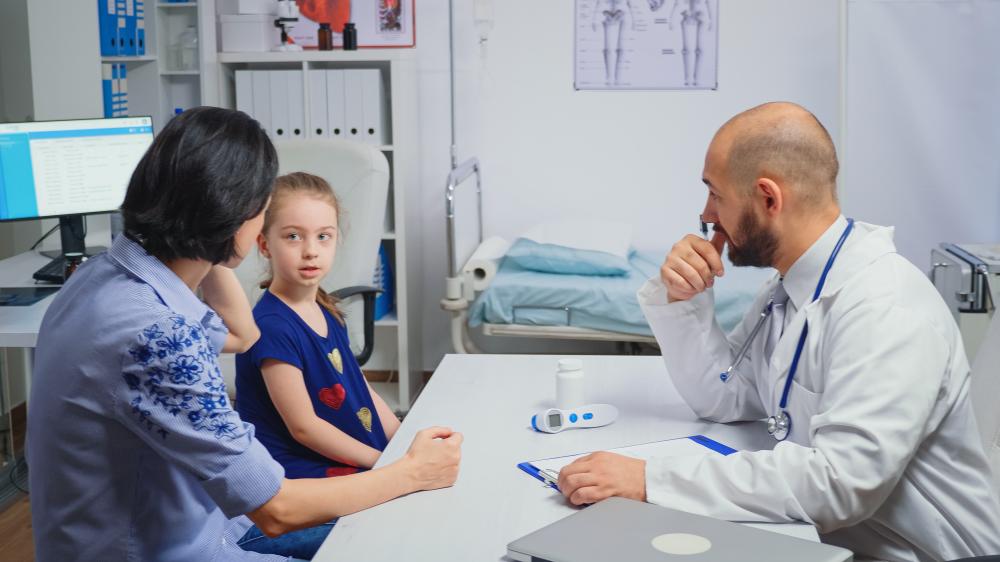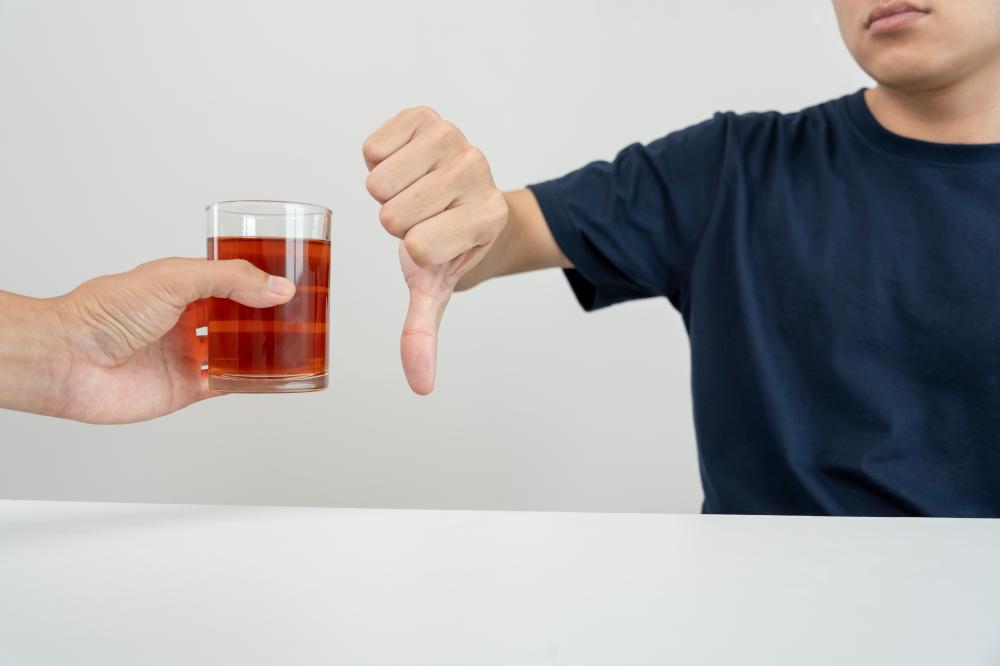Table of Contents
Understanding Dual Diagnosis
The journey towards recovery for individuals facing dual diagnosis is laden with unique challenges and requires a compassionate approach. Dual diagnosis, the simultaneous occurrence of substance abuse and mental health conditions, demands a nuanced treatment strategy. At Lotus Recovery Services, we recognize the intricate dance between these two facets of health and offer our expertise in their management.
Our dual diagnosis treatment in Thousand Oaks embodies a philosophy that treats both mental health and substance use disorders concurrently. It’s imperative to address the entwined nature of these ailments, as ignoring one can impede the healing of the other. We’ve witnessed firsthand the profound impact of integrated treatment, fostering hope and resilience in our clients.
Personalizing Your Path to Recovery
Every individual’s journey is as distinct as their fingerprint. At Lotus Recovery, we believe in the power of personalized treatment plans. Our approach begins with a thorough assessment, which lays the foundation for a treatment program that embraces the individual’s unique challenges and strengths.
Our dual diagnosis treatment in Thousand Oaks is not a one-size-fits-all regimen. We tailor our services to fit the contours of each person’s experiences. The personalization extends to selecting therapies and activities that resonate with your lifestyle, ensuring that the treatment is both effective and sustainable.
Embracing Holistic Healing
At Lotus Recovery Services, we don’t just treat symptoms; we look at the whole person. The mind, body, and spirit are all part of the recovery journey, which is why we offer a diverse range of therapies aimed at nurturing all aspects of self. Our treatments include traditional psychotherapy, holistic modalities, and support groups, each playing a vital role in the healing process.
The Power of Community
In our dual diagnosis treatment Thousand Oaks program, the strength of community is undeniable. The solidarity found within group therapy offers a shared space for empathy, understanding, and collective growth. We observe time and time again how peer support becomes one of the cornerstones of lasting recovery.
Beyond the confines of our center, we encourage engagement with the wider community. Volunteering, social activities, and support networks serve as integral components of the recovery ecosystem, reinforcing the progress made within our walls.
Navigating Challenges with Empowerment
Confronting dual diagnosis can be a daunting expedition. It’s a path often fraught with stigma and misunderstanding. At Lotus Recovery Services, we empower our clients through education and self-advocacy, equipping them with the knowledge and tools to navigate their diagnosis confidently.
Empowerment Through Education
Understanding the intricacies of dual diagnosis demystifies the condition and dismantles misconceptions. Our educational programs and resources shed light on the biological, psychological, and social facets of addiction and mental health, fostering empowerment through understanding.
Furthermore, we nurture self-advocacy, encouraging individuals to take charge of their recovery and articulate their needs. Empowerment is a potent force in the healing journey, transforming clients from passive recipients of care into active participants in their wellness.
A Compassionate Approach
Empathy lies at the heart of our treatment philosophy. We know that the road can sometimes be isolating, which is why compassion is woven into every interaction–our team, many of whom have walked a similar path, extend empathy not just as professionals, but as individuals who truly understand.
The Role of Empathy
Empathy not only fosters a safe and non-judgmental space but also deepens the therapeutic relationship. This connection enhances trust, ensuring that our clients feel heard and validated throughout their treatment. The result is a more engaged and motivated individual, ready to tackle the work of recovery.
Building a Supportive Environment
Our center in Thousand Oaks has been designed to be a sanctuary, a place where calm and safety are paramount. From the décor to the attitude of our staff, every element is chosen to provide an atmosphere where healing can flourish. We’ve found that a supportive environment acts as fertile ground for transformation.
Embracing Life Beyond Treatment
Recovery does not end with the conclusion of a treatment program. It’s a lifelong journey that we at Lotus Recovery Services are privileged to initiate. Our dual diagnosis treatment in Thousand Oaks is just the beginning; we aim to equip our clients with the skills and confidence to thrive in their lives post-treatment.
Sustaining Recovery in the Real World
Transitioning back into daily life entails facing stresses and triggers that were absent in the supportive environment of our program. We focus on relapse prevention strategies, coping skills, and ongoing support to ensure that recovery is not just achieved but sustained.
Life beyond our center is filled with opportunities for growth, learning, and joy. We encourage our clients to embrace it all, to find new passions and hobbies, and to build a fulfilling life that supports their ongoing wellness.
Your Journey Starts Here
The path to recovery begins with a single step, and at Lotus Recovery Services, we’re here to guide you from that initial moment of courage to the continuous journey of growth. Dual diagnosis treatment in Thousand Oaks is not a remote concept–it’s an accessible, tangible process that unfolds in the heart of our community.
If you or a loved one is grappling with the complexities of dual diagnosis, know that hope and help are within reach. With our intimate understanding of this challenge, our doors and hearts are open to those ready to emerge from the shadows into light.
Our team’s dedication to your success is unwavering. We invite you to join us at Lotus Recovery Services, where each step forward is celebrated, and every individual’s potential for healing is honored. Dual diagnosis treatment in Thousand Oaks is more than our expertise–it’s our passion, and every day, we see the powerful changes it brings into the lives of our clients.
What is the most effective treatment for dual diagnosis?
At Lotus Recovery Services, we hold firm to the belief that integrated treatment is the most effective way to address dual diagnosis. This means that we treat both the substance use disorder and the mental health condition in a synchronized manner. By doing so, we are not only addressing the symptoms but also the underlying causes of each condition, as they often influence one another. For instance, many of our clients find that their mental health improves as they gain control over their substance use, and vice versa. Our treatment plan includes a combination of evidence-based therapies such as cognitive-behavioral therapy, medication management, peer support groups, and holistic practices tailored to the individual’s specific needs. Remember, what works for one person might not work for another, so personalization is key to effectiveness.
What is the new name for dual diagnosis?
The term ‘dual diagnosis’ is constantly evolving, and in our practice at Lotus Recovery Services, we often hear it referred to as ‘co-occurring disorders.’ This term more accurately represents the concurrent diagnosis of a mental health disorder and a substance use disorder. We find that this language assists in clarifying that these are two distinct, yet interrelated issues that require a comprehensive treatment approach. It’s also a reminder that the focus should be on the whole person, rather than just one aspect of their health.
What are the most common conditions with a dual diagnosis?
Through our years of experience at Lotus Recovery Services, we’ve observed that certain mental health conditions frequently co-occur with substance abuse. These include, but are not limited to, depression, anxiety disorders, bipolar disorder, personality disorders, and schizophrenia. Each of these conditions can either precede substance use or be exacerbated by it. It’s a complex relationship that underscores the importance of treating both conditions simultaneously for a successful recovery. By recognizing and understanding these common comorbidities, we can tailor our treatment programs to address the nuances of each client’s dual diagnosis effectively.
How do you get a dual diagnosis?
Receiving a dual diagnosis is contingent upon a thorough and comprehensive evaluation by mental health professionals like us at Lotus Recovery Services. It typically involves a detailed assessment of an individual’s mental health history, substance use patterns, and the interplay between the two. Gathering this information can be intricate, and sometimes it may require several sessions and discussions with the individual, as well as with their loved ones, to understand the full scope of their challenges. It’s not just about identifying the disorders but also understanding how they affect and reinforce each other, which is critical for developing an effective treatment plan.
How does family involvement in treatment impact the success of dual diagnosis recovery?
Family involvement can significantly influence the success of recovery from a dual diagnosis. At Lotus Recovery Services, we often integrate family therapy into our treatment plans because it can foster understanding, improve communication, and heal relationships that might have been strained by the individual’s conditions. The support of family members can provide a stable and motivating environment that encourages continuous recovery. Furthermore, involving family helps everyone affected to learn about the complexities of dual diagnosis, equipping them with the knowledge to better support their loved one on the journey to wellness. And remember, families also need support–they too are part of the healing process.
What does success look like in dual diagnosis treatment and how is it measured?
Success in dual diagnosis treatment is multifaceted, and at Lotus Recovery Services, we measure it in a variety of ways. Beyond the obvious indicators such as sobriety and symptom management, we look for improvements in the overall quality of life. This can include restored relationships, increased employment or educational engagement, better self-care, and a greater sense of purpose. We aim to empower our clients, helping them develop the skills to cope with stress, communicate effectively, and make healthier life choices. These outcomes signify not just recovery but also a sustainable transformation that prepares our clients for the realities of life outside our center. It’s about thriving, not just surviving. Don’t you think success is truly about the journey rather than just the destination?
Dual Diagnosis Resources
-
Substance Abuse and Mental Health Services Administration (SAMHSA) – Offers extensive information on dual diagnosis and co-occurring disorders, including treatment locator and educational materials. SAMHSA Dual Diagnosis
-
National Institute on Drug Abuse (NIDA) – Provides a wealth of resources related to drug abuse and its intersection with mental health conditions. NIDA for Patients & Families
-
National Institute of Mental Health (NIMH) – Offers science-based information on mental health disorders, which can be part of a dual diagnosis. NIMH Health Topics
-
MentalHealth.gov – Provides one-stop access to U.S. government mental health information, including sections on how to get help. MentalHealth.gov
-
National Alliance on Mental Illness (NAMI) – Offers resources and support for individuals and families dealing with mental illness and co-occurring substance use disorders. NAMI Support & Education
-
Centers for Disease Control and Prevention (CDC) – Provides information on mental health and substance use, including resources for treatment. CDC Mental Health
-
American Psychiatric Association (APA) – Offers resources for psychiatric diagnosis, treatment, and support, including dual diagnosis issues. APA for Patients & Families
-
Psychology Today – Features a national directory of therapists, psychiatrists, therapy groups, and treatment facility options in the United States. Psychology Today Therapy Groups



